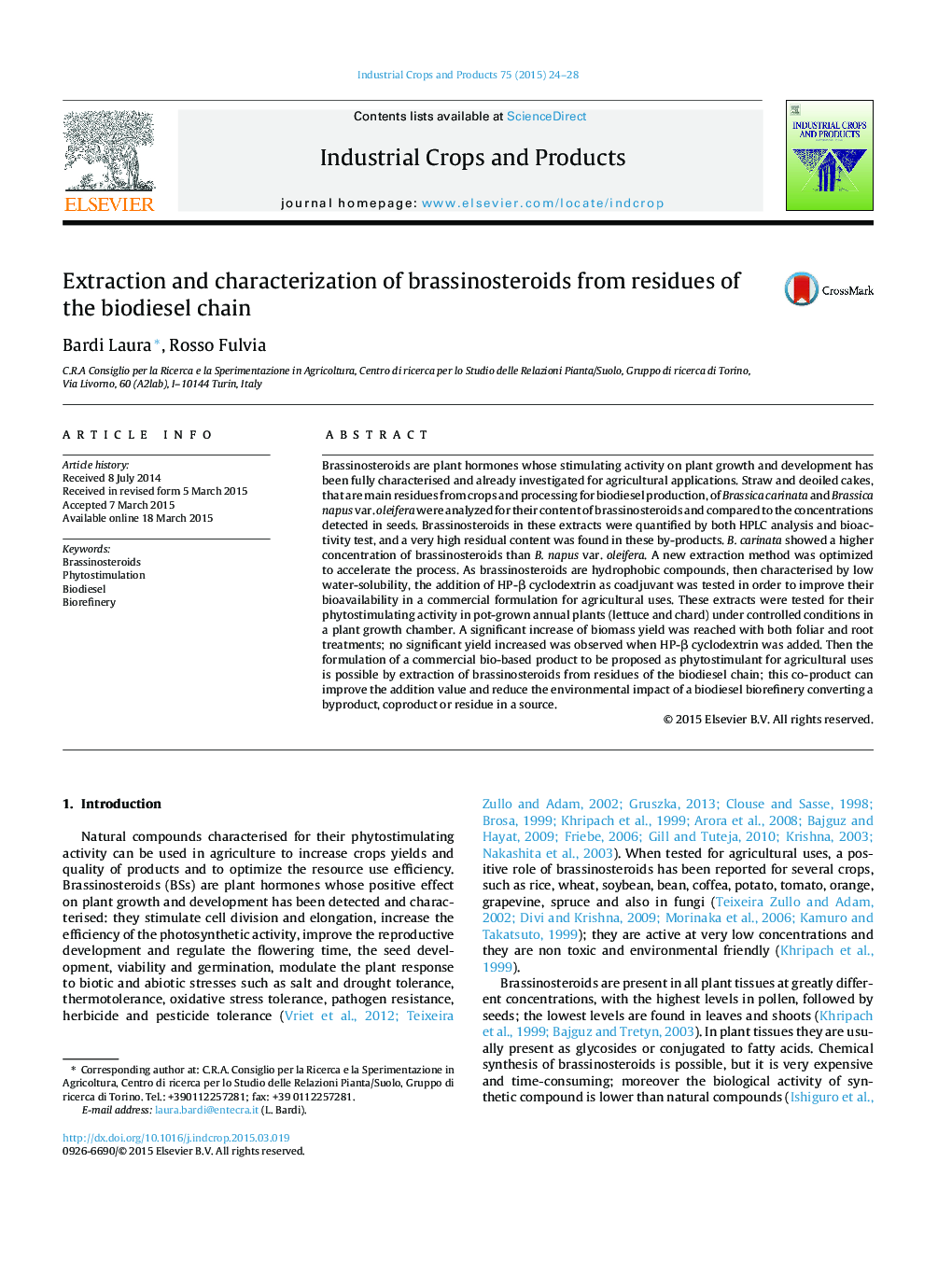| Article ID | Journal | Published Year | Pages | File Type |
|---|---|---|---|---|
| 4512800 | Industrial Crops and Products | 2015 | 5 Pages |
•Brassinosteroids were extracted from residues of the biodiesel chain and analysed.•A new rapid method was obtained to reach preparative brassinosteroids extraction.•High amounts of residual brassinosteroids were detected in straw and deoiled cakes.•The phytostimulant activity of extracts was tested by foliar and root treatment.•The addition of HP-β cyclodextrin increased brassinosteroids activity in root treatments.
Brassinosteroids are plant hormones whose stimulating activity on plant growth and development has been fully characterised and already investigated for agricultural applications. Straw and deoiled cakes, that are main residues from crops and processing for biodiesel production, of Brassica carinata and Brassica napus var. oleifera were analyzed for their content of brassinosteroids and compared to the concentrations detected in seeds. Brassinosteroids in these extracts were quantified by both HPLC analysis and bioactivity test, and a very high residual content was found in these by-products. B. carinata showed a higher concentration of brassinosteroids than B. napus var. oleifera. A new extraction method was optimized to accelerate the process. As brassinosteroids are hydrophobic compounds, then characterised by low water-solubility, the addition of HP-β cyclodextrin as coadjuvant was tested in order to improve their bioavailability in a commercial formulation for agricultural uses. These extracts were tested for their phytostimulating activity in pot-grown annual plants (lettuce and chard) under controlled conditions in a plant growth chamber. A significant increase of biomass yield was reached with both foliar and root treatments; no significant yield increased was observed when HP-β cyclodextrin was added. Then the formulation of a commercial bio-based product to be proposed as phytostimulant for agricultural uses is possible by extraction of brassinosteroids from residues of the biodiesel chain; this co-product can improve the addition value and reduce the environmental impact of a biodiesel biorefinery converting a byproduct, coproduct or residue in a source.
